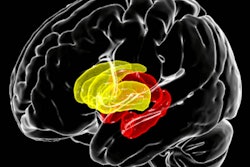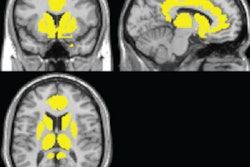Researchers using functional MRI (fMRI) discovered deficits in cognitive function among older HIV-positive individuals -- many of whom had "normal" scores on neuropsychological testing.
The study from neuroscientists at Georgetown University Medical Center was published online November 17 in the journal AIDS Care. Previous research has estimated that cognitive impairment affects 30% to 60% of HIV-infected people, lead author Xiong Jiang, PhD, said in a statement. That figure may be underestimating the condition in those 50 years or older, based on the current study.
The researchers had participants -- some with HIV and some without -- perform an alternating face-gender/word-semantic task while in an fMRI scanner. The HIV-positive group was significantly slower in adjusting to changes in tasks, which correlates with brain dysfunctions in the dorsal anterior cingulate cortex, a key brain region for executive function.
The study reinforces the fact that despite advances in treatment, HIV-associated neurocognitive disorder (HAND) remains one of most common disorders in individuals with HIV infection. The preliminary findings could have significant implications for public health, Jiang and colleagues believe.



















